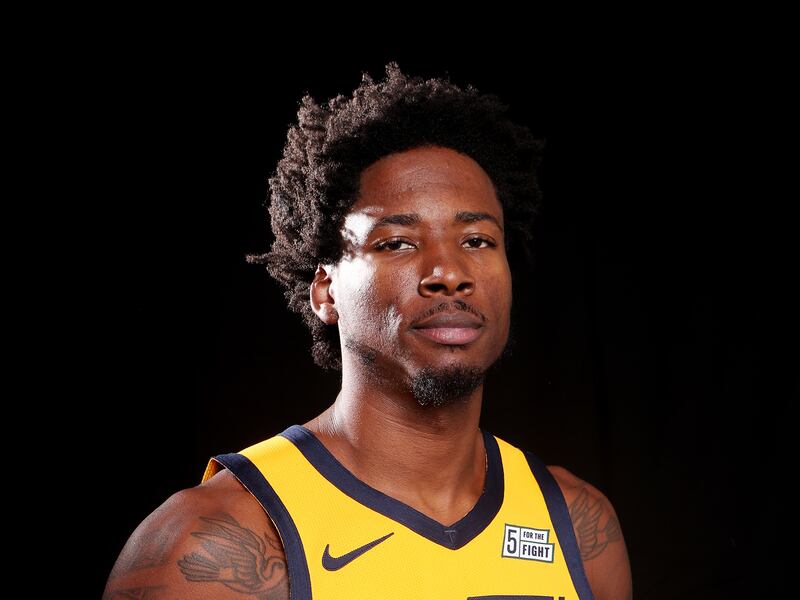SALT LAKE CITY — Utah Jazz reserve center Ed Davis wants basketball to return.
In a Q&A session with HoopsHype’s Alex Kennedy, Davis, who was on last week’s conference call in which players spoke about their concerns regarding the league’s plan to restart, outlined what happened during the now infamous call and why he thinks it is in the players best interest to resume play, rather than sit out.
While the call did include roughly 80 players, Davis said that most were there to listen. There was a small group of players who were most vocal during the call, including Kyrie Irving, who has gained the most attention for his comments. But, even within the small group that did most of the talking, Davis said there were even fewer who were truly suggesting the NBA’s restart plan was a bad idea.
“There were 80 guys on the call and maybe 10 who spoke, and of the guys who spoke, it was probably 50/50, only half said that we might need to take a stand and that playing might not be the best idea,” Davis said.
One of the main things players are grappling with is the idea that resuming the 2019-20 season could end up being a distraction from the protests against racial inequality and injustice.
Irving, reportedly said, “I’m willing to give up everything I have,” in order to keep the current social conversations progressing and that includes his NBA salary and the opportunity to play.
Davis, who is on the back end of his career and does not earn near what Irving does nor receive the playing time that Irving does, said that for him, giving up the NBA season would actually take away from what NBA players are able to do for black communities. Even if the NBA serves as a distraction from civil unrest, Davis believes that the financial capabilities of the players and the league is more important.
“Yeah, it’s going to be a distraction, but we can take that money — those billions and billions of dollars that we’re going to make — and pour it back in the community,” he said. “You can look at it like that — that us losing out on that money would hurt generations of people.”
Davis noted that players are already losing money in the 25 percent paycuts that have been enforced due to COVID-19, and money lost because of that means that there is less money flowing from NBA players into charities and toward reform.
If the NBA players were to turn down a plan to restart the season, players and teams would lose out on any revenue they could get for the rest of this season and the league could potentially tear up the current collective bargaining agreement, which could lead to a lockout and lost salary and revenue next season.
“I get it, we need to take a stand; we got to do this, we got to do that,” Davis said. “But you got to have money to do some of these things and make some of these things happen. (Change) isn’t just gonna happen because of us boycotting and not playing and shutting it down.”
In continuing to explain his stance, Davis noted that having so many players from so many teams in one place if the season were to restart would not only give NBA players a huge national platform, but allow them time to work together and come up with innovative ideas that can help enact real change. Why not use that isolated time in the NBA bubble to do some good?
In addition to what Davis mentioned to Kennedy, it’s important to keep in mind the financial ramifications to those who are not in the NBA but work in the hotels and restaurants in Orlando, or work in arenas who might be without jobs for even longer if games are lost due to a lockout next season.
The decision of the NBA players will not only impact their own wallets but the livelihood of thousands and as Davis said, money earned by players could directly impact the communities of color that the players are looking to empower.
“Taking a stand and not playing, I just don’t think that’s going to better the situation,” Davis said. “I guess it might be a little distraction, but it’s on us to turn that distraction into a positive thing.”


